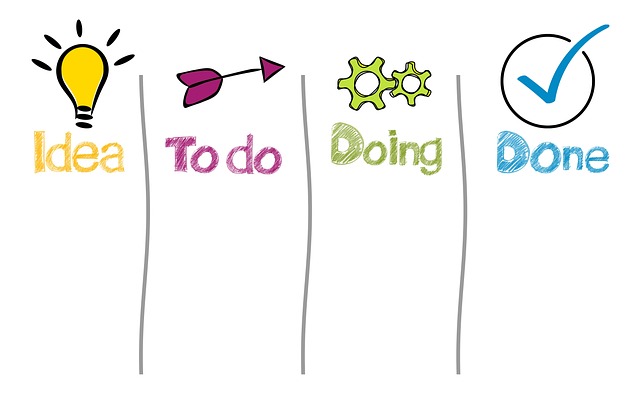Event planning for local businesses on social media should be tailored to each business's unique brand and audience, using platforms where their target demographic is most active. Effective promotion involves compelling visual content, targeted hashtags, and interactive features like polls and live sessions to engage potential customers. User-generated content, such as contests or challenges, can expand the event's reach. During the event, real-time interaction and immediate responses to comments and messages are key for maintaining a strong brand presence and fostering community connection. Post-event, it's crucial to follow up with attendees for feedback and gratitude, which also helps in gathering insights for future events. A robust hashtag strategy combined with interactive engagement is essential for successful and well-attended events, as highlighted in "Event Planning for Local Businesses." Additionally, the book emphasizes the importance of data-driven strategies, focusing on key performance indicators to measure success and using analytics tools to monitor and optimize campaigns in real-time. This approach not only enhances customer interaction but also contributes to business growth and solidifies an online presence through meaningful social media engagements.
navigating the digital landscape, local businesses are harnessing the power of social media events to connect with audiences and amplify their reach. This article delves into the art of event planning for local businesses within the realm of social media, offering insights on crafting compelling online gatherings. From leveraging effective hashtags to employing strategic engagement tactics, learn how to create events that resonate and drive participation. Additionally, discover key analytics and metrics that are pivotal in measuring success and gauging the growth impact of these digital endeavors. Master social media event management to keep your local business at the forefront of consumer attention and engagement.
- Crafting Effective Social Media Events for Local Businesses: Strategies and Best Practices
- Leveraging Hashtags and Engagement Tactics to Amplify Local Business Events on Social Media
- Measuring Success: Analytics and Metrics for Assessing the Impact of Social Media Events on Local Business Growth
Crafting Effective Social Media Events for Local Businesses: Strategies and Best Practices

Crafting effective social media events for local businesses requires a strategic approach that aligns with the unique needs and characteristics of both the business and its target audience. Event planning for local businesses on social media platforms should begin with a clear understanding of the brand’s goals, whether it’s increasing brand awareness, driving sales, or engaging with the community. By leveraging platform-specific features such as Facebook Events, Instagram Live, or Twitter Chats, businesses can create immersive experiences that resonate with their audience. It’s crucial to select the right social media channel based on where the potential attendees are most active and engaged.
Once the platform is chosen, planning the event involves meticulous detail, from the event concept and content to scheduling and promotion. Effective event promotion strategies for local businesses include creating visually appealing graphics, utilizing targeted hashtags, and sharing behind-the-scenes content to generate buzz. Interactive elements like polls, quizzes, or Q&A sessions can enhance audience participation. Additionally, incorporating user-generated content through contests or challenges can amplify the event’s reach. Throughout the event, real-time engagement is key; local businesses should monitor comments and messages, respond promptly, and maintain a consistent brand voice to foster a sense of community and belonging. After the event concludes, follow-up with attendees through thank you messages or surveys to gather feedback and improve future social media events. This not only demonstrates appreciation but also opens channels for ongoing communication and customer loyalty.
Leveraging Hashtags and Engagement Tactics to Amplify Local Business Events on Social Media

In the realm of digital marketing, local businesses can significantly amplify their events through strategic use of social media platforms. A pivotal element in this strategy is the leveraging of hashtags, which act as beacons for users to discover content related to an event. By researching and employing relevant, trending, or event-specific hashtags, businesses can increase the visibility of their events beyond their immediate audience. This not only broadens the potential attendee pool but also positions the event within broader conversations on social media. For instance, incorporating a unique and catchy hashtag for a local festival can encourage participants to use it throughout their promotional content and during the event itself, creating a ripple effect that can reach potential attendees far and wide.
Engagement tactics complement the use of hashtags by fostering interactions between the business, the event attendees, and the broader online community. Interactive content such as polls, quizzes, or live Q&A sessions can pique interest and encourage participation. Additionally, running contests or giveaways tied to the event can incentivize engagement. Businesses should also consider leveraging social media’s diverse features, like Instagram Stories or Facebook Events, to provide real-time updates, behind-the-scenes peeks, and highlights from the event. By engaging with users through comments, messages, and shares, local businesses can create a sense of community and anticipation that drives attendance and enhances the overall experience of the event. Event Planning for Local Businesses should therefore prioritize both hashtag strategy and interactive engagement tactics to maximize the impact of their social media events.
Measuring Success: Analytics and Metrics for Assessing the Impact of Social Media Events on Local Business Growth

Successful event planning for local businesses within the realm of social media hinges on the ability to measure and analyze the impact of these events effectively. To gauge the success of a social media event, businesses must leverage analytics and metrics that provide insights into audience engagement, reach, and conversion. Key performance indicators (KPIs) such as follower growth, hashtag performance, and sentiment analysis offer valuable data on how the event resonates with the target demographic. By monitoring these KPIs before, during, and after the event, businesses can identify trends and adjust their strategies accordingly. Additionally, tracking metrics like click-through rates (CTR), engagement rates, and the number of shares or mentions helps in understanding the event’s virality and effectiveness in driving online traffic and sales. This data is crucial for refining future social media events to maximize local business growth and ensure that each digital gathering is more impactful than the last.
Furthermore, the integration of social media analytics tools allows for real-time monitoring of event performance, enabling businesses to respond promptly to feedback and optimize their campaigns on-the-fly. The use of advanced analytics can also reveal the demographics most engaged with the event, providing a clearer picture of target customer profiles. This information is instrumental in tailoring future social media events to align with the preferences and behaviors of the local community, thereby enhancing the potential for business growth and establishing a strong online presence. Event planning for local businesses through social media is not just about hosting an event; it’s about creating meaningful interactions that translate into tangible business outcomes.
Effective social media event planning for local businesses is no longer a luxury but a strategic imperative in today’s digital landscape. By implementing targeted strategies, utilizing hashtags wisely, and closely monitoring analytics and metrics, local businesses can not only host successful events online but also drive significant growth through these interactions. The insights gleaned from measuring success provide valuable feedback that guides future endeavors, ensuring that each social media event surpasses the last in engagement and impact. Local businesses now have a robust toolkit to elevate their brand presence and connect with their communities in meaningful ways.
